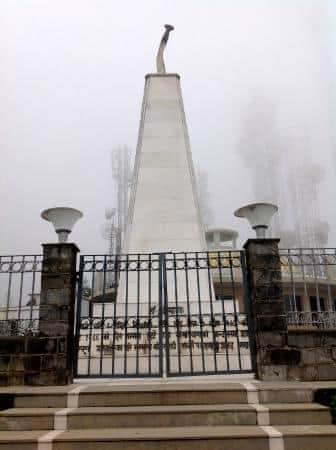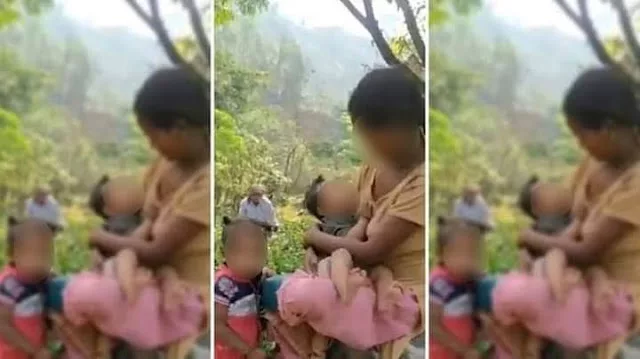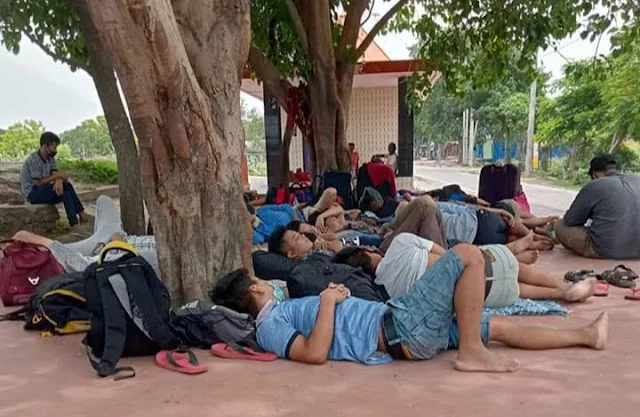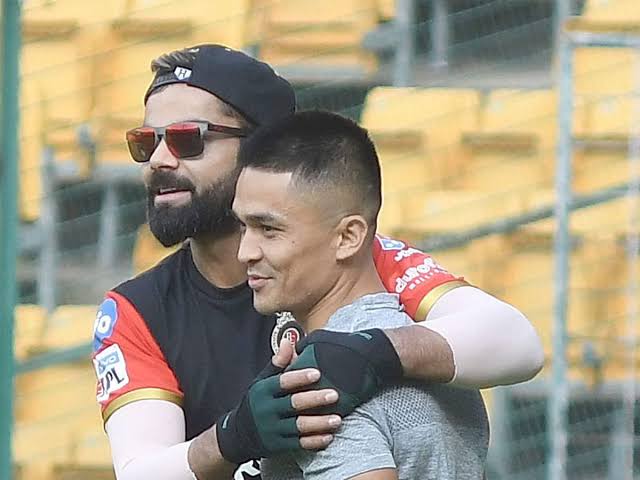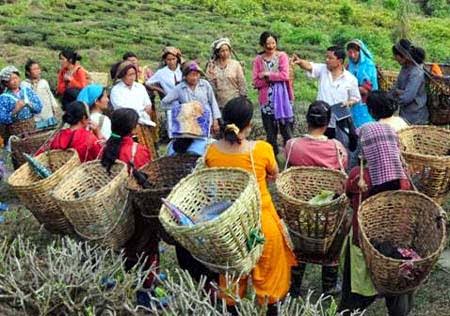 |
| Nepali Language Recognition in India |
To demand the rights of the Gorkhas Late Anang Singh Thapa, editor of the Nepali newspaper “ Jagrath Gorkha ’ published from Dheradun and his two colleagues Late Bir Singh Bhandari, late Narendra Singh Rana in the year 18th January, 1956 submitted a memorandum to his excellence, the first President f Independent India Dr. Rajendra Prasad Sharma demanding the constitutional recognition of Nepali language just like other Indian languages recognized in the eight schedule of the Indian constitution. Late Anand Singh Thapa was the first Gorkha son of the soil of this country to voice the demand for the recognition of Nepali language which ignited a peaceful democratic struggle amongst the Gorkhas to achieve the constitutional demand which is seen as the first step in laying the foundation for the struggle. The struggle started from Dehradun and found its way to Sikkim via Darjeeling and spread to North East gaining momentum all over India. In Darjeeling a Nepali literary organization “Sahitya Sammelan” constituted a twenty five members sub-committee for the demand and held its first assembly in the year 1970 March 29 and decided to depute a team to Delhi to meet the president, prime minister and home minister to put forward the demand. Dr. Parasmani Pradhan after his return from Delhi wrote books and submitted to Sahitya Academy Delhi to press for the recognition of Nepali Language.
A short history of Nepali language and literature, an explanation of Nepali language and literature, the origin of Nepali language and progress, Nepali language in the eight scheduled.
In the year 1947 during the tenure of Suniti Kumar Chatterjee, president, Nepali language got recognition from the Sahitya Academy and this language was added in the list of the academy. In the year 1976 Sahitya Academy constituted a ten member Nepali Language advisory committee led by Parasmani Pradhan, Indra Bahadur Rai among the ten members renowned international senior Nepali literature from Chandmari, Kohima, Late Hari Prasad Gorkha Rai was also one of the member of the advisory committee. A notification in the Calcutta Gazette was published in the year 1918 July 24, that Nepali language as a vernacular in class 10, 12 and BA allowed to study as a subject and can appear exams. In the end of the struggle fro recognition of Nepali language as one of the Indian language could be achieved and the struggle ended from Sikkim. The them member of the parliament from Sikkim, wife of the then chief minister of Sikkim Nar Bahadur Bhandari Smt. Dil Kumari Bhandari played a constructive role and tabled the bill in the Lok Sabha, gathered the support of nearly three hundred MPs to get the bill passes, eventually nepali language got constitutional recognition on 20th August 1992.
After 36 years of democratic struggle by the Gorkhas Nepali language was added in the eight schedule of the Indian constitution. Nepali newspaper published from different parts of the country also lent its voice during the struggle. At present even in the North East dew Nepali literary society has come in the name of “Nepali Sahitya Parishad’ Assam, Manipur and Meghalaya to preserve the language, today we can also find some English book translated in Nepali language by renowned Nepali literary writer. The Guwahati University has introduced MA in Nepali subject (we can find a chapter from the book written by Late Hariprasad). After many years of misinterpretation, misconception about the Gorkhas who have accepted India as their motherland and fought shoulder to shoulder with all the Indian Patriots struggle for independence. The sacrifices and exemplary patriotism of the valiant Gorkhas in this part of the world which has a history of more than two hundred years was acknowledged by giving national recognition to their mother tongue, to name a few Gorkhas, Ari Bahadur Gurung, a barrister and a member of Indian constitution drafting committee, Retd captian Ram Singh Thakuri, music composer of our national anthem, major Durga malla, the first Gorkha Martyr of INA hanged to death by the then British regime whose statue is installed in the precinct of the parliament stands as an irrevocable history. During the democratic struggle for constitutional recognition of Nepali language, all those who have lost their lives became Martyrs and we pay homage to them and all those unsung heroes who have contributed in one way to the other NERSNA in particular join the rest of the Gorkhas to say we will always remain indebted to you. Anil Chhetri NERSNA Kohima From : Morung Express

